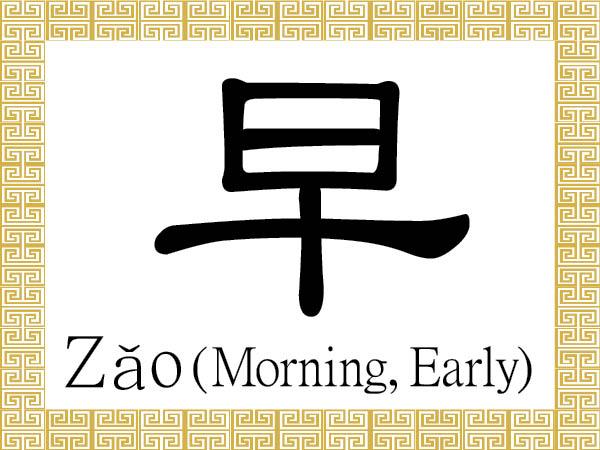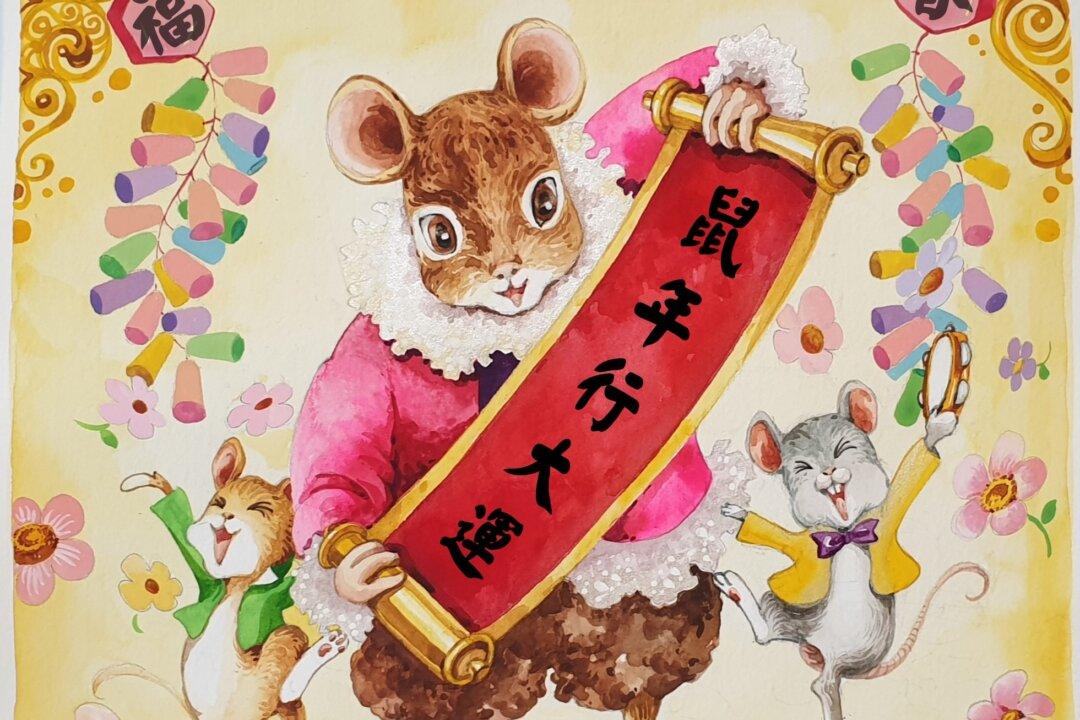The Chinese character 早 (zǎo) as a noun stands for morning. It is formed with the character for the sun, 日 (rì), at the top. As an adjective and adverb, 早 (zǎo) refers to early, previous, or soon.
To wish someone “good morning,” a Mandarin speaker says 早安 (zǎo ān), or just 早 (zǎo), where 安 (ān) conveys good wishes such as safety, security, calm, contentment, and satisfaction.
Meanwhile, a Cantonese speaker would say 早晨 (zǎo chén), literally “early morning,” where 晨 (chén) carries similar meanings to those of 早 (zǎo), i.e. morning, dawn, or daybreak.
The expression 早眠早起 (zǎo mián zǎo qǐ), literally “early sleep early rise,” advises people to keep good hours, meaning regular, early hours.
早眠早起 (zǎo mián zǎo qǐ), literally 'early sleep early rise,' advises keeping good hours, meaning regular, early hours.




